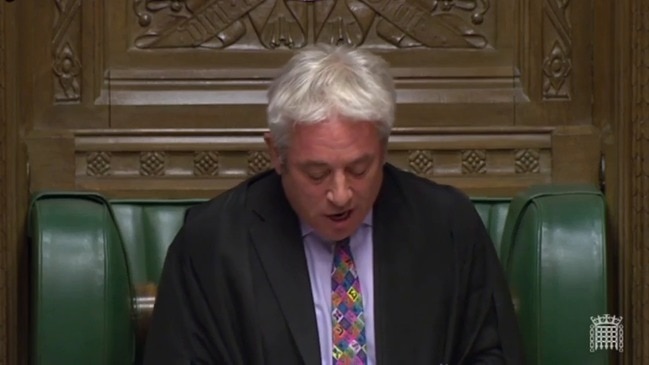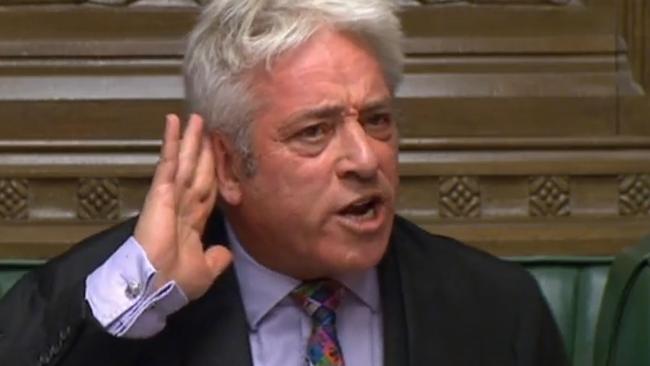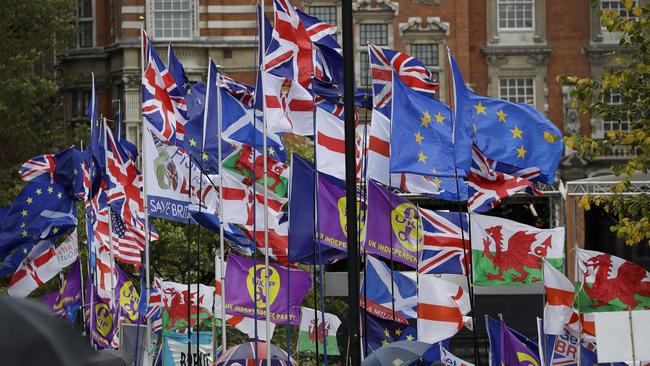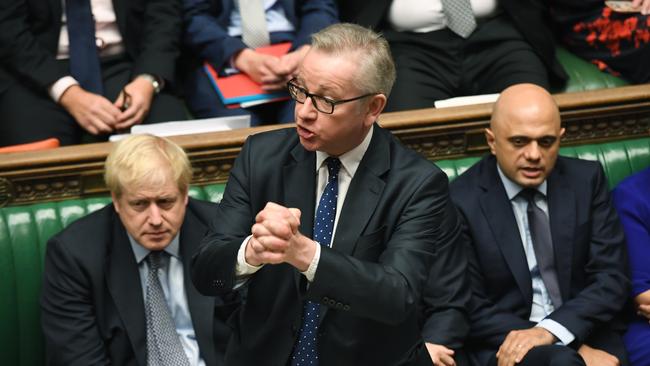Brexit: Boris Johnson may win battle over his deal but still lose the war
Johnson, an expert seducer, told rivals what they want to hear to pass his deal. The danger comes when MPs read the small print.

“Hope is a dangerous thing … it can kill a man,” says Red, the character played by Morgan Freeman in The Shawshank Redemption. Boris Johnson last week compared Brexit negotiations to the film’s prison break scene in which the hero crawls along a sewage pipe through “500 yards of shit-smelling foulness” to freedom.
Like Andy Dufresne who dug his way out of jail using a tiny rock hammer, the prime minister has done what many people thought was impossible. He persuaded the European Union to reopen Theresa May’s withdrawal agreement and struck a new deal. Then, against the odds, he persuaded hardline Tory Eurosceptics to back it, while also securing the support of most of the independent Conservatives he had suspended from the parliamentary party. He even managed to win over a smattering of Labour MPs, but Mr Johnson is not out of the stinking Brexit tunnel yet and could still find his escape route blocked.

The prime minister has been forced to break his pledge that he would never request an extension to his “do or die” Brexit deadline of October 31. The theatricality of refusing to sign the letter to the EU, and sending a second one that says he does not want a delay, was merely a stunt - he has done what he repeatedly said he would not do and it has been interpreted as such in Brussels. There was no “cunning plan” in Downing Street to avoid asking for an extension.
MORE: Bercow block deal vote | Boris expects to get vote over line | All Brexit news and analysis
Perhaps more importantly, the government defeat on Not-So-Super Saturday shows that there is still no stable Commons majority for anything Mr Johnson proposes. It is just about possible that the prime minister would get his deal through if MPs were given a straight vote on it but they will not be given one. On Monday John Bercow ruled that the prime minister could not table a “meaningful vote” on the principle of his deal because a similar motion had already been debated on Saturday. Instead, MPs will go straight to scrutinising the detail of the legislation, and as soon as the Withdrawal Agreement Bill itself is published the internal contradictions of the fragile coalition of MPs who have (in some cases reluctantly) agreed to support it will be exposed.
The fact that the Commons voted on Saturday for Sir Oliver Letwin’s amendment, withholding support for the deal until the Brexit legislation has passed, demonstrates just how little trust there is in Mr Johnson himself. It also gives MPs time and space to examine the prime minister’s plans which means that the underlying clash of interpretations will emerge. This is exactly what Downing Street dreads and so it is trying to force the proposals through parliament at breakneck speed.

An expert seducer, the Tory leader has made different promises to different people, telling rival groups what they want to hear in an attempt to get his deal over the line. Various factions have agreed to back the prime minister’s plan because they all hope, for conflicting reasons, that it will lead to their preferred outcome but they can’t all be right.
No sooner had John Baron, the Tory MP, told the BBC last week that he and his fellow Eurosceptics had been given a “clear assurance” by “people like Michael Gove and Dominic Raab” that “if trade talks fail we will be leaving on no-deal terms” than Stephen Hammond, one of the whipless Tories, tweeted that Mr Gove had told him precisely the opposite, “that if no free trade agreement is in place then a further extension can and probably would be used”. Andrew Bridgen, a hardline Brexiteer, felt confident enough to declare “no-deal’s back on the table” just hours after Philip Hammond, the former chancellor, had written: “I haven’t come this far seeking to avoid no-deal in 2019 to be duped into voting for a heavily camouflaged no-deal at the end of 2020.”

Meanwhile, Labour MPs believe they have been given a guarantee by No 10 that workers’ rights will be protected and that environmental standards will be upheld even though these “level playing field” provisions have been moved out of the withdrawal agreement and into the non-binding political declaration as a signal to Tory free-marketeers that the prime minister really wants to create a low-tax, low-regulation “Singapore-on-Sea”.
Anand Menon, director of the think tank UK in a Changing Europe, points out that there was a Commons majority of 112 for joining the European Economic Community in 1972 but this shrank to eight when MPs saw the detailed legislation required by the European Communities Bill. As Mr Menon says: “There’s a big difference between agreeing something in principle and agreeing the detailed arrangements for it.” Mr Johnson can only dream of securing a majority of 112. It will also become increasingly clear that Downing Street’s “Get Brexit Done” slogan, which resonates with many MPs, is nonsense because the most ferocious arguments about the future relationship between the UK and the EU are still to come.
The prime minister’s deal is, as one Labour source puts it, a “house of cards in a tornado”. Not even the timetabling of the legislation is safe. Numerous alternative alliances are forming around amendments that could undermine the withdrawal agreement. If, for example, MPs vote to stay in a customs union, then the bill would immediately become impossible for the European Research Group of hardline Tory Eurosceptics to accept.
Whipless Conservatives are likely to join Labour MPs to try and force Mr Johnson to give parliament a say over whether the transition period should be extended to avoid a no-deal Brexit at the end of next year in an attempt to flush out the ambiguity of his position. “That’s clearly a point of tension and is something that can be resolved without it being seen as a wrecking amendment,” one former cabinet minister says. There may not yet be a majority for a confirmatory referendum but one would quickly develop if the prime minister’s deal is rejected by the Commons. The prime minister would prefer a general election of course but, as he has found, he does not have the power to trigger one without the support of opposition MPs.
In The Shawshank Redemption, Andy Dufresne tells his friend Red: “Hope is a good thing, maybe the best of things and no good thing ever dies.” That is not always true in politics. Mr Johnson is not dead in a ditch just yet but nor is he out of the hole and his opponents are still busy digging.
The Times


